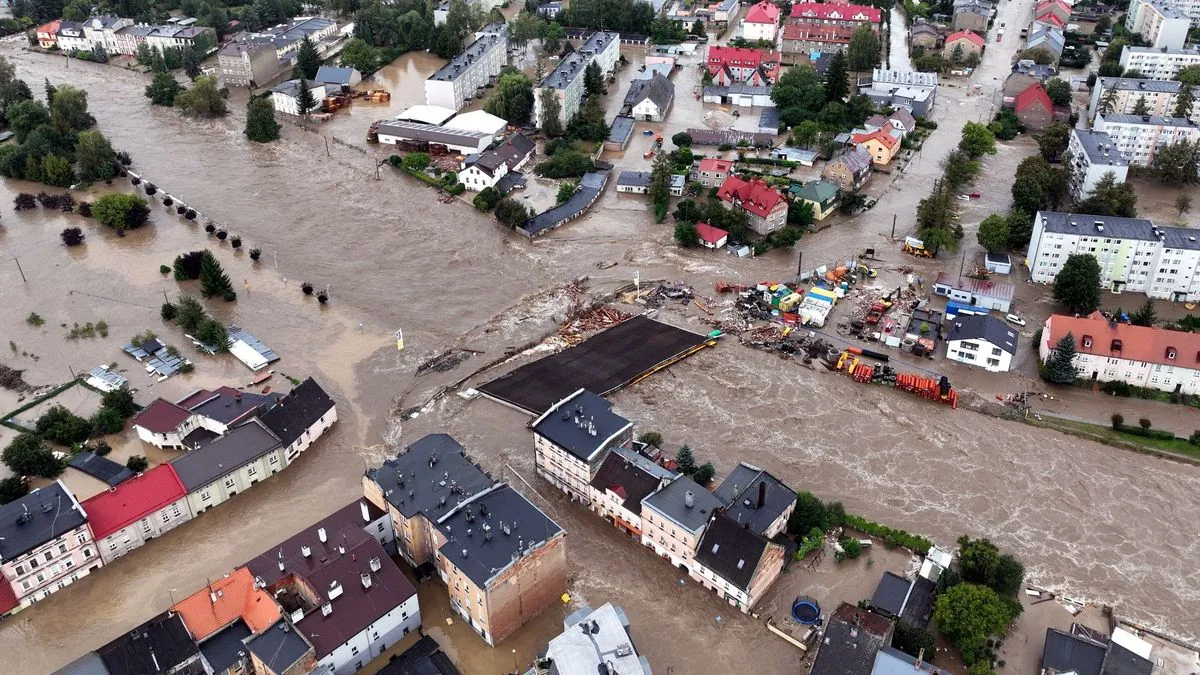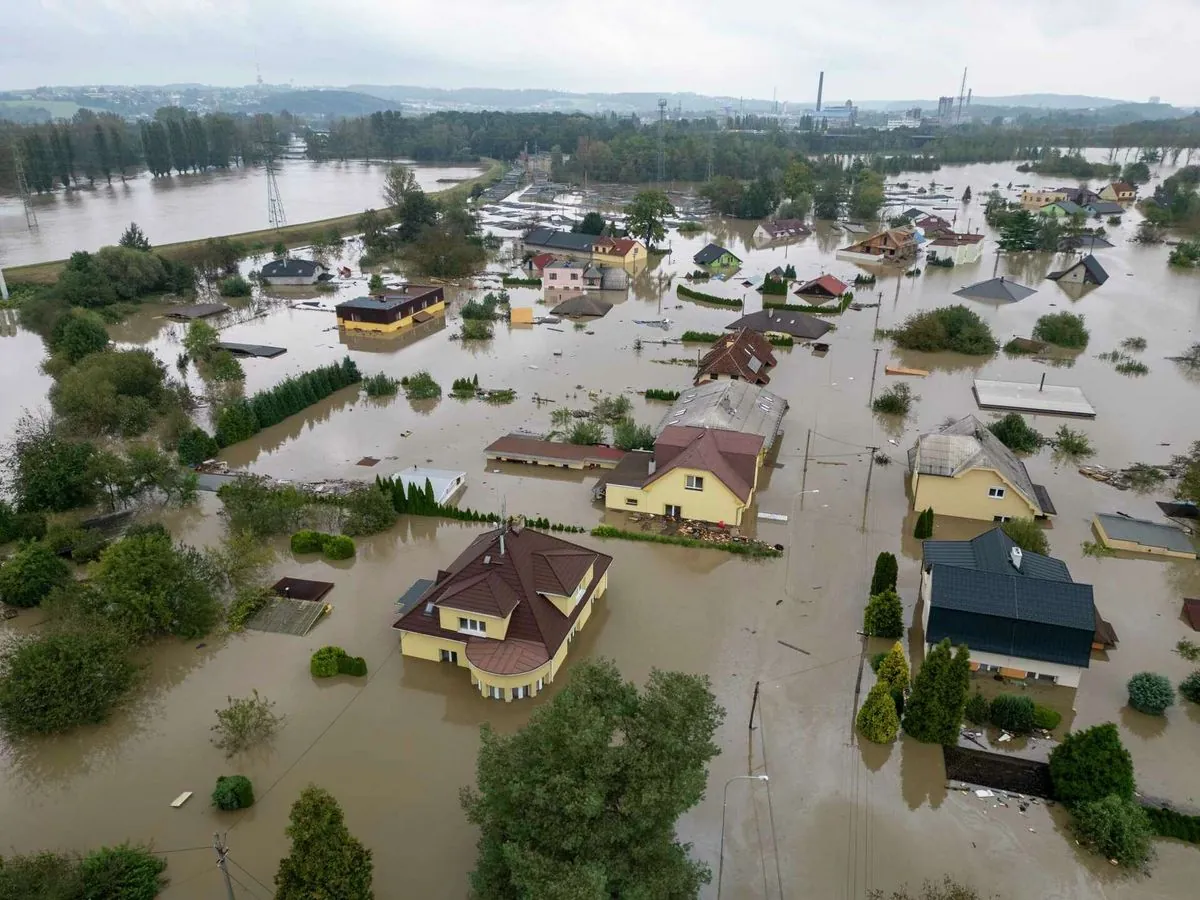Central Europe Grapples with Devastating Floods, EU Leaders to Assess Damage
Massive flooding across Central Europe claims lives and causes widespread destruction. EU Commission President plans visit as countries mobilize military and emergency services to combat rising waters.

A year ago, Central Europe faced a severe flooding crisis that continues to impact the region. The disaster, caused by exceptionally heavy rains, has resulted in widespread destruction and loss of life across several countries.
Donald Tusk, Poland's Prime Minister, has invited European Union Commission President Ursula von der Leyen to visit Wroclaw and assess the situation firsthand. Leaders from the Czech Republic, Slovakia, and Austria are also expected to attend. This visit highlights the severity of the crisis and the need for a coordinated European response.

The death toll has risen significantly, with the Czech Republic reporting five fatalities, bringing the regional total to 24. Additionally, Poland and Romania have each reported seven deaths, while Austria has confirmed five. The flood's impact extends beyond human casualties, causing extensive damage to infrastructure and forcing thousands to evacuate their homes.
In Hungary, the Danube River has risen dramatically, approaching levels last seen during the record-breaking floods of 2013. Viktor Orbán, Hungary's Prime Minister, announced the mobilization of nearly 6,000 professionals, including water authority personnel and military members, to assist with flood preparations. The rising waters have inundated parts of Budapest, threatening critical transport infrastructure.
"We have mobilized all available resources, including prison inmates, to help fill sandbags and reinforce our flood defenses."
The Czech Republic has deployed its military to assist in the hardest-hit northeastern regions. Army helicopters are being used to distribute humanitarian aid, while soldiers are constructing temporary bridges to replace those destroyed by the floods. In Ostrava, the country's third-largest city and a major industrial center, approximately 400 people remain in evacuation centers.
Poland's southwestern city of Wroclaw, known for its numerous bridges connecting 12 islands, is now facing the brunt of the floodwave. The extended nature of this flood event is putting significant pressure on the city's flood defenses.
In Italy, the northern region of Emilia-Romagna, renowned for its culinary traditions and UNESCO World Heritage sites, has also been affected by severe flooding. Approximately 1,000 residents were evacuated as rivers overflowed in the provinces of Ravenna, Bologna, and Faenza. Local authorities have suspended train services, closed schools, and advised residents to avoid travel and work from home where possible.
This flooding crisis underscores the increasing frequency and severity of extreme weather events in Europe. It also highlights the importance of robust flood protection systems, such as Hungary's extensive network of over 4,000 km of levees. As the region continues to grapple with the aftermath of this disaster, the need for long-term climate adaptation strategies becomes ever more apparent.


































